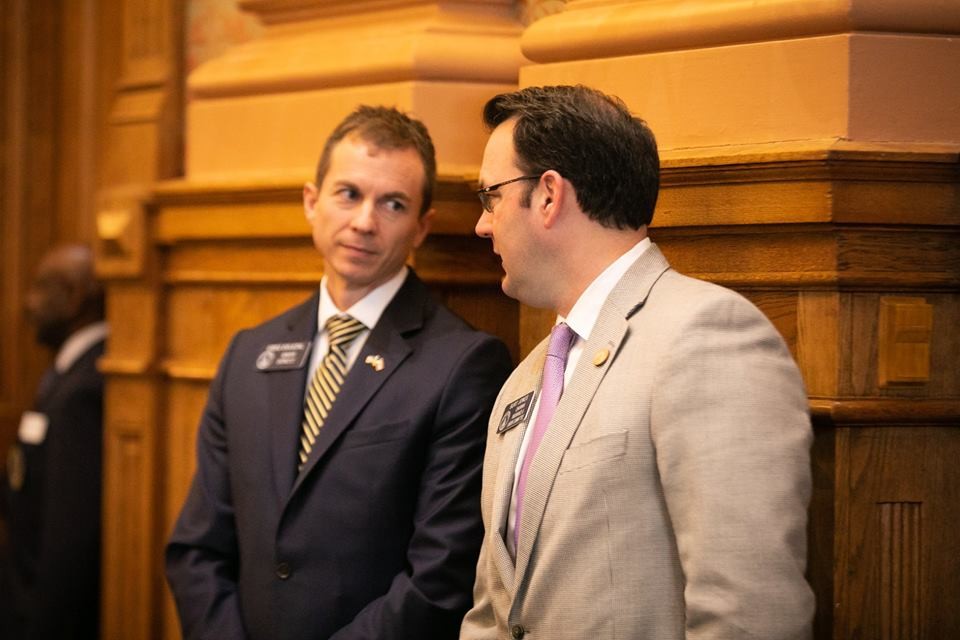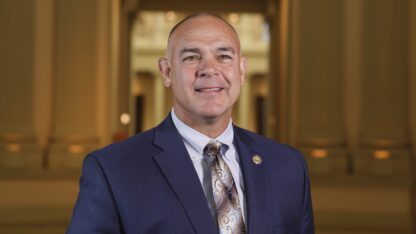After a two-hour fiery debate on Tuesday, the Georgia Senate rejected a bill that would have essentially created a school voucher program. Senate Bill 173 would let parents put money the state allocates for their child in public school into an Education Savings Account (ESA). Parents could use money in the account to pay for private school tuition or other services, like tutoring.
Conflict Over Cost
The bill’s sponsor, Greg Dolezal, R-Cumming, said the legislation would let families develop a customized education plan based on their student’s needs.
“They allow the state funding to follow the child into a variety of optional educational experiences, such as homeschooling, hybrid schooling, online schooling, virtual schooling, private schooling, home tutoring, et cetera,” Dolezal said.
Dolezal said the bill would be revenue neutral since the money allocated for that student by the state would follow him to private school. Critics disagreed with that assessment. Senate minority leader Steve Henson, D-Stone Mountain, said some local money would also follow the student, due to the way the state’s school funding formula works.
“When the [state] share is counted, local systems make up about five percent of that,” Henson said. “That will be going to those [private school] students, the way this bill is written.”
The debate continued mostly along party lines, with Democrats decrying the use of public money to support private schools and Republicans arguing that the bill would expand educational opportunities, especially for families in need.
Sen. John Albers, R-Roswell, took issue with the Democrats’ argument that families would be taking wrongful advantage of state funds.
“The state has no money,” he said. “They have the people’s money, which they forcibly take from them through taxes. So, the same people’s money who may want to have a different option for their child…I would hope we would never stand in front of the student and the people who fund that.”
It’s Not Necessarily Dead
The state auditor didn’t evaluate the cost of SB 173. However, it did provide a financial analysis for a similar bill in the House. The cost would be $48 million in the first year and could get as high as $543 million over 10 years.
Margaret Ciccarelli, director of legislative affairs for the Professional Association of Georgia Educators (PAGE), said public schools can’t afford to lose that much money.
“Many of our public schools are still struggling,” Ciccarelli said. “Transportation costs, particularly in rural Georgia, are a heavy lift. And we were unable to hit the promised $3000 pay raise for Georgia educators, and instead came in lower than that.”
Stephen Owens, a senior policy analyst with the Georgia Budget and Policy Institute said similar programs in other regions haven’t been successful.
“We’ve seen programs like these in states across the nation–Louisiana, Ohio, Washington, D.C.—[test] scores always go down,” Owens said.
Georgia has two other voucher-like programs. One is a special needs scholarship program that provides financial aid to students with Individual Education Plans (IEPs) so they can attend private schools. The other is a tax credit scholarship program. Under the plan, individuals and organizations can donate to a Student Scholarship Organization (SSO) in exchange for a dollar for dollar tax credit. The SSOs award the money to private schools. The funds never go into the state’s reserves.
The final Senate vote was 28-25. However, the bill may not be completely lifeless. Senators will have a chance to reconsider it on Thursday. The House could also pass its version of the legislation before then. Bills that don’t make it out of a chamber before Thursday are dead for the session.










